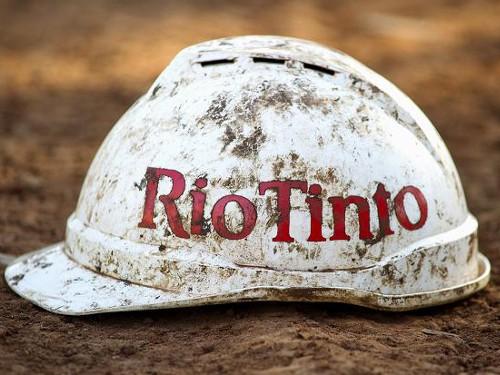
Rio Tinto explains reasons for leaving Alucam, Cameroon’s aluminium giant

(Business in Cameroon) - On October 8, 2014, the Rio Tinto Alcan firm officially announced its decision to sell its assets in Aluminium du Cameroun (Alucam). Although it explained that the decision was taken because “Alucam’s business plans” were no longer in alignment with “Rio Tinto’s strategic priorities”, there has been much scepticism surrounding this explanation.
One such sceptic is the Réseau associatif des consommateurs de l’énergie (RACE – Energy Consumers’ Association Network), a group of NGOs which indicated in an October 12, 2014 press release that “this sudden departure (by Rio Tinto) seems to be indirectly linked to the signing on July 10, 2014 of an agreement between EDF (Electricité de France) and the Cameroonian government for the construction of the Natchigal hydroelectric plant in the Centre region,” the hydroelectric project that Rio Tinto was already eyeing since it was already slated to do the expansion of Alucam’s factory in Edea.
On October 17, 2014, in the Cameroonian governmental paper, Claudine Gagnon, Lead Advisor and Media Relations Chief at Rio Tinto Alcan seems to have set things straight. “The future of Alucam is more and more influenced by the development of a new business model oriented towards local manufacturing of value added products in lieu of primary metal exports. This new vision is no longer a part of Rio Tinto’s goals, as the company is focused on primary metal production, having withdrawn from all processing activities over the last few years,” she explained.
Speaking about the construction project for the Natchigal plant, a 400 MW facility that will enable Cameroon’s largest electricity consumer, Alucam, to triple its aluminium production (from 90,000 to 300,000 tonnes), Claudine Gagnon is resolute: “Rio Tinto Alcan intends to remain in the project and will continue to contribute to its development.”
This information was confirmed by Alain Malong, Managing Director of Alucam. Ms. Gagnon goes on to state that “even if Rio Tinto relinquishes its shareholdership in Alucam, it will remain a partner and will continue to maintain its relationship for a year, offering the possibility to the entity acquiring the shares to consider that role, depending on its areas of focus and its choices.”
While awaiting the sale of Rio Tinto’s shares in December 2014, the Alucam Group, which also has two subsidiaries (Socatral and Alubassa), respectively specialised in the manufacturing of corrugated roofing and kitchen utensils, is currently 46.67% owned by Rio Tinto Alcan and the Cameroonian government each. The remaining capital is shared between Agence française de développement (5,6%) and personnel (1.1%).
BRM
Mags frontpage
- Most read 7 days
- shared 1 month
- read 1 month






























